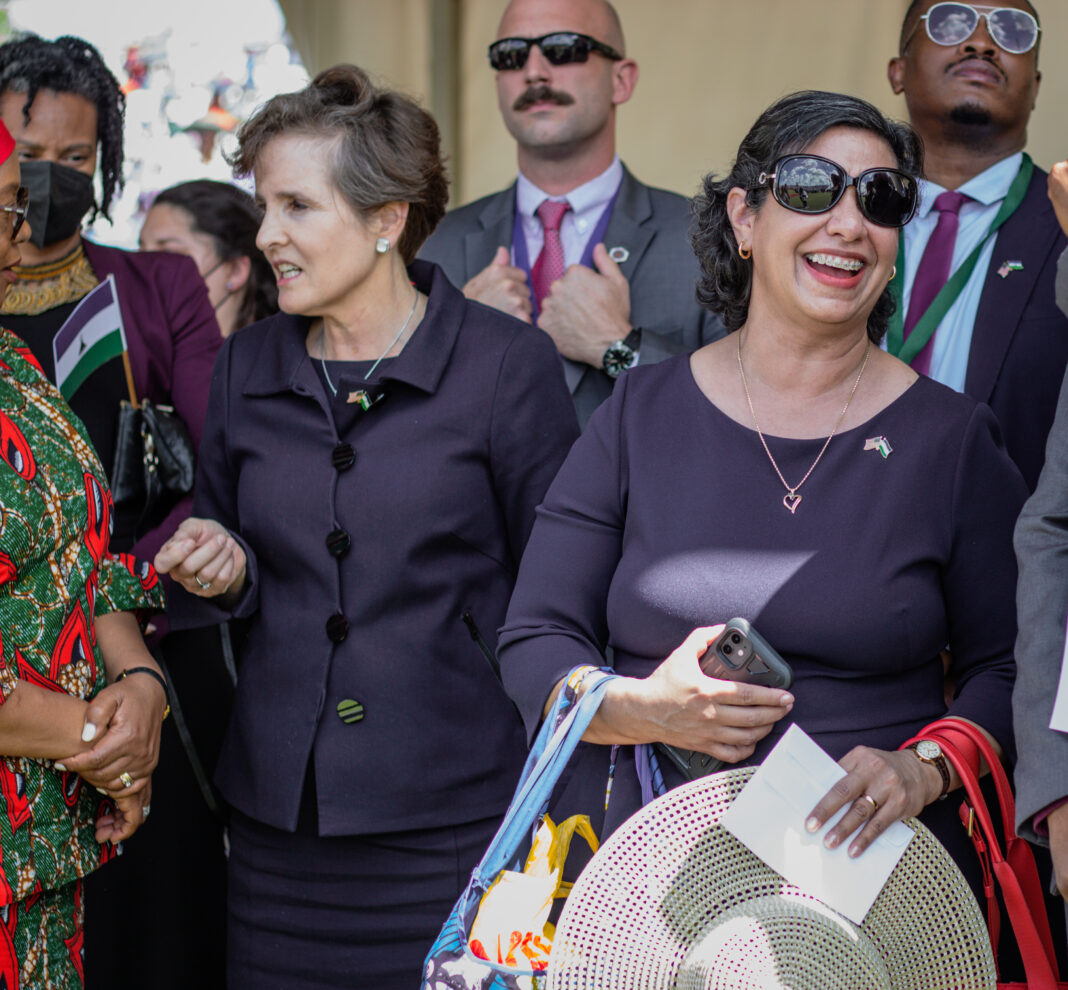Bereng Mpaki
The United States (US) ambassador in Lesotho, Maria Brewer has set a deadline for Lesotho to enact labour and health related laws to facilitate “entry into force” of Lesotho’s second Millennium Challenge Corporation (MCC) compact worth US$300 million (about M5.4 billion).
The ambassador said Lesotho has until March 2024 to have promulgated new laws to unlock the funding under the compact.
Lesotho is infamous for relying on an archaic Labour Code Order of 1992 as the principal law that sets broad employment standards within the private and public sectors.
The order, which was promulgated 31 years ago under the military rule, remains operational in a democratic dispensation; perhaps indicating just how far behind the law has fallen from reality.
Ambassador Brewer was speaking on Lesotho’s encouraging MCC score card performance for the 2023/24 fiscal year, when she touched on the need for the country to expedite labour and health law reforms, including reviewing issues of inheritance.
MCC scorecards assess individual country’s commitment to ruling justly, investing in people and economic freedom using certain policy indicators, to determine their eligibility for consideration for a compact award.
“It is wonderful to witness Lesotho once again passing the scorecard. Lesotho’s improvement, from passing 14 out of 20 indicators in fiscal year 2023 to 15 out of 20 in fiscal year 2024, is truly commendable. These improvements signify Lesotho’s commitment to strengthening democratic governance and economic freedom,” she said yesterday at the State House in the presence of Prime Minister, Samuel Ntsokoane Matekane.
She was quick to point out however, that there is more work to be done for Lesotho to unlock the M5.4 billion funding earmarked to ensure greater access to quality healthcare; create equitable business development opportunities; invest in high-value crop production; and boost profits and formal employment for women- and youth-owned enterprises.
“As we commend these accomplishments, it is vital to note that the success of the Health and Horticulture Compact hinges on the Government’s continuous commitment and actions. To achieve entry into force of the compact by March 30, 2024, Lesotho must urgently accelerate the enactment of the Labour Bill of 2022, occupational health and safety regulations, and additional inheritance reforms.
“Prioritising the enactment of these laws will strengthen Lesotho’s legal framework and is vital, as the Compact cannot enter into force until they are enacted.”
She has expressed confidence in Lesotho’s ability to meet the stipulated conditions to ensure timely entry into force of the compact.
“I also want to commend the Government on enacting three laws in December 2022 that are conditions to the start of the compact (also known as “entry into force”). The Counter Domestic Violence Act and the Harmonization Act strengthened protection and the legal status of women. The third law, the Act establishing Millennium Challenge Account-Lesotho, led to the recent establishment of the MCA Board and the appointment of the MCA-Lesotho II CEO, mme ‘Mannana Phalatse.”
On his part, PM Matekane admitted that a lot of work needs to be done to ensure access to the compact.
“The government is committed to passing the inheritance reforms, with the twin objective of: (1) enabling the compact to enter into force by March 2024; and (2) to improve the country’s score on the Land rights and Access indicator.
“My government is committed to promoting gender equality by providing women and men with the same access to legal and public institutions and to participate in economic opportunities,” he said.




